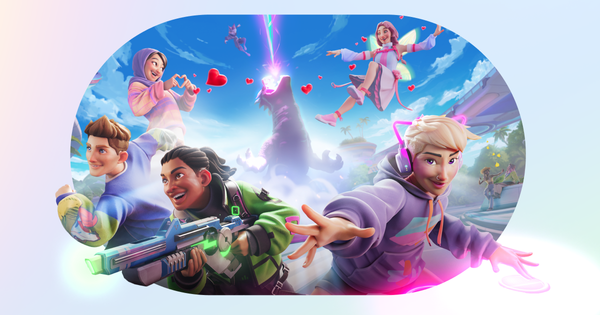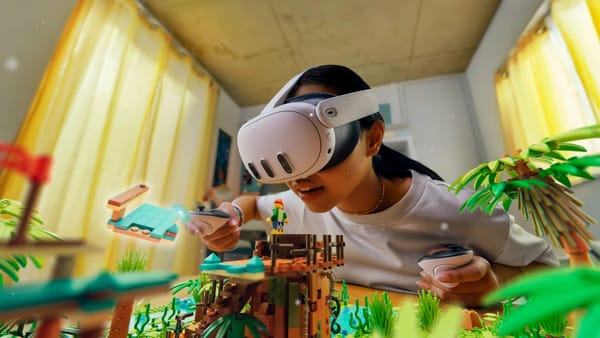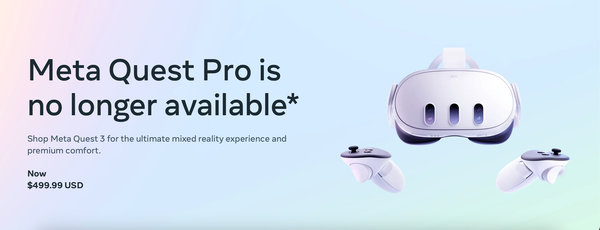XR Developer News - May 2024

Somehow this month felt like a slower month in XR developer news, and I think that was mainly due to Google I/O being very very light on XR. There was some interesting AR news there, but we'll have to keep waiting for a while longer to see what comes out of the Google x Samsung x Qualcomm cooking pot. Still, even for a slow month, there's plenty to talk about, so let's go!
As always, if I missed anything, let me know through LinkedIn. And if this newsletter is valuable to you as an XR professional, subscribe to receive it by email as soon as it's available and I'd love it if you would consider becoming a paid Supporter at a few bucks a month.
Meta Quest
After last month's major Horizon OS and App Lab announcements, this month was very calm in comparison. We're starting to see the first steps of the integration of App Lab into the main Quest Store, with App Lab apps starting to become more visible. I think it's a very good direction Meta is going here, with a less strictly curated approach fitting much better with a more mature ecosystem, so I hope they progress further down that route soon.
Meta released a pretty modest v65 (release notes, including relevant SDKs) update to the Quest OS, with a few more visionOS-inspired features around panoramic photos and such, but no major developer news. There are also some hints of things v66 could bring, but we'll have to wait and see.
Unity released v2.0 of its OpenXR + AR Foundation support for Meta Quest OS and v1.11 of its general OpenXR plugin.
The submission deadline for its Presence Platform Hackathon was in the middle of May and there are some interesting submissions, which could be cool to check out for inspiration. The winners are still to be announced.
If you're on the Spark side of the Meta ecosystem, Dan Moller made a very useful video covering some recent changes relevant to developers (like Spark Studio beta releases 183 and 184) and anyone publishing Spark filters for brands.
Apple Vision Pro
With WWDC coming up on June 10th, next month will likely be full of Apple Vision Pro and visionOS news. Unsurprisingly, Apple has been pretty much silent this month, so what little visionOS there was, has been from third parties.
- Unity released v1.2.3 of its PolySpatial visionOS support. They're steadily working on improving it by adding new features and quality of life bits, which is nice to see. There's a v2.0 pre-release version as well, which is identical to v1.2.3, but for Unity 6.
- Unity also held an extremely deep dive webinar about getting the most out of graphics on Vision Pro through PolySpatial. If you're working on a project which involves that, it's a really good one to watch. More on the developer side of things, Dan Miller shared some of his work on using SwiftUI in combination with PolySpatial.
- If you're interested more in the design aspects of creating visionOS apps, ShapesXR had a nice live stream about that, going through a use case with one of the companies using their software.
So, then Google. Ahead of I/O there were some rumors that Android XR would be announced, but nothing came of that. But, once you got through the two gazillion times AI and Gemini were mentioned, there was some AR news.
I'm not talking about the glasses that were teased, because honestly, who knows if we'll ever see those being launched. I still too vividly remember the last time they pulled one of those at I/O 2022, which came to nothing.
The actual interesting AR news was in the I/O sessions dedicated to the topic. The fact however that the main video was only 10 minutes long, with more than half of that dedicated to looking back instead of ahead, illustrates very well the limited amount of XR news there.
The major announcement was that it will become possible to publish custom location based AR content to Google Maps through Google Geospatial Creator, which is then viewable on site by any Google Maps user and remotely in Google Street View. While it's just a pilot program in two cities for now, it's quite a nice addition, opening up a whole new platform for developers to publish AR content to.
With features like this, when eventually we get to AR glasses hardware, Google will have a pretty strong shot at being the killer AR app with Google Maps as its software platform. One question though which always remains with any Google platform, SDK or tool is how much time and effort to invest into building content for it, with the ever present risk of it ending up in the Google Graveyard.
Google was nice enough to round up all the I/O AR news in a blog post and it also released v1.43.0 of the ARCore Extensions for Unity's AR Foundation, which includes some small Geospatial Creator tweaks.
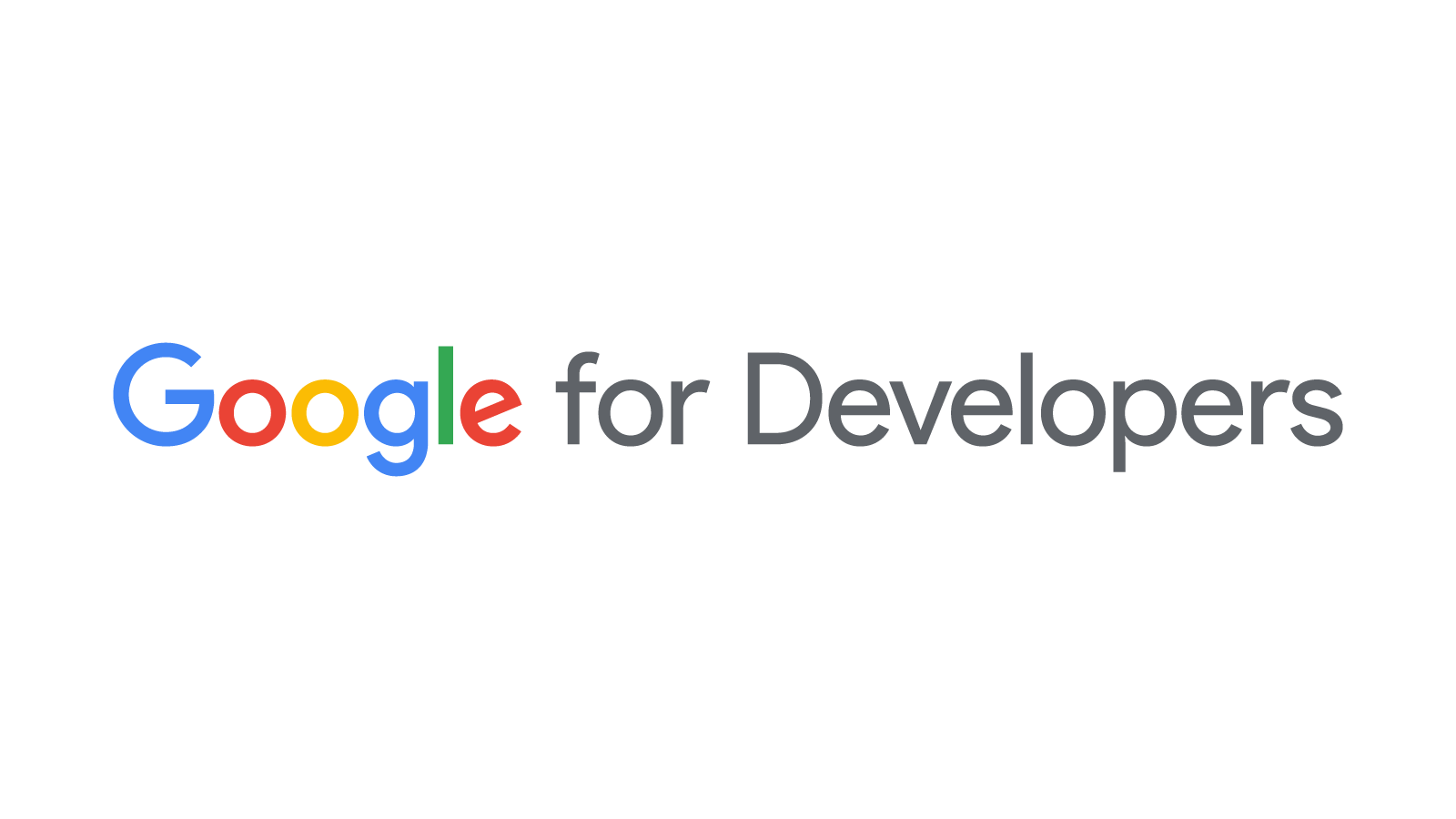
Software updates
- Microsoft released an OS update to HoloLens 2, the 24H1 version, with a focus on enterprise features for IT admins. Seems like there is at least some life left in the device.
- Similarly Magic Leap is continuing to support its headset and released v1.7.0 (release notes) of its OS and the accompanying SDKs. It's adding a Web Converter tool, which allows easy creation of 2D apps which are simply a website, likely in response to the 2D app support in visionOS and Quest OS. If you're developing for the device and can't connect to USB anymore, check out this change.
- Niantic released v3.5 of the Lightship ARDK. It focuses solely on documentation improvements and bug fixes, which are always welcome, but no new features. If you're planning on using ARDK for location based VPS experience, they've got a new deep dive video out explaining how to work with it.
- Qualcomm has released v3.4.0 of its Snapdragon Spaces Unity SDK with a few small changes, and the same for Unreal with even fewer.
- Unity has started releasing the first preview versions of Unity 6. While the XR improvements in the latest release (e.g. Composition Layers) had been previously previewed, it's now possible to play around with them.
- If you're looking for an alternative to Unity, check out open source game engine Godot. The contributors to that engine are slowly but surely working on shoring up the support for XR, such as AR passthrough.
- Another alternative would be Wonderland Engine, which just released version v1.2.0 and v1.2.1. The team at Wonderland is trying to build a really solid Unity-like development environment aimed squarely at XR and 3D on the web. By optimizing for that platform from the start, they believe they can offer a superior experience compared to using web as deployment platform in a general purpose engine like Unity. It's quite an interesting journey, so I'm really curious to see how they'll do.
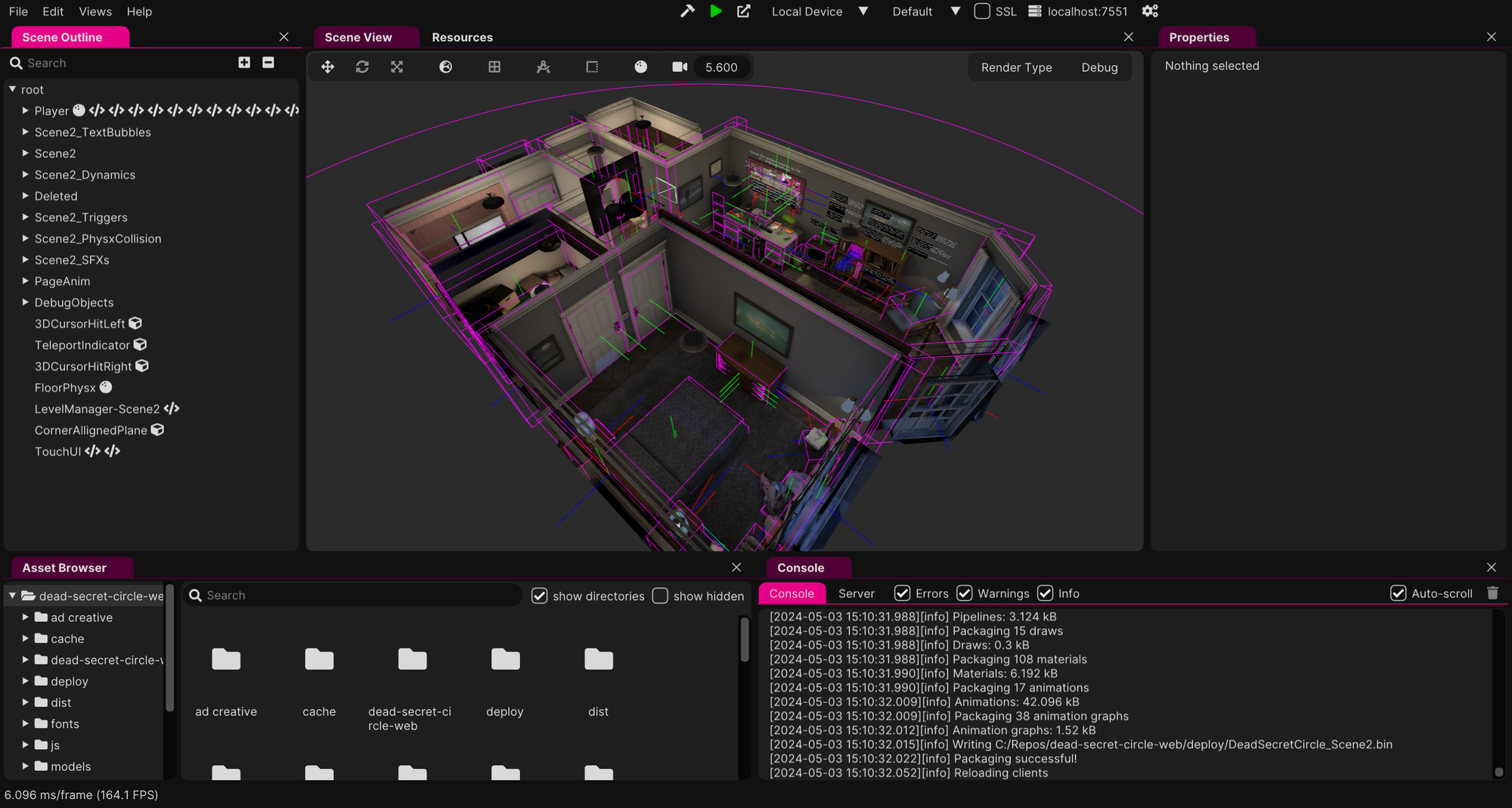
- And yet another company in the space that's embracing XR through the web browser is Zappar, which has added support for WebXR to all its tools in recent months.
- A-Frame v1.6.0 was released with a massive list of small bugfixes and improvements.
- If you're interesting in building 3D/XR on Web, check out this new book by Alessandro Straccia on three.js and A-Frame.
- Snap is putting more and more effort into bringing its Lens technology to the web.
- TikTok released v4.2.0 and v4.3.0 of Effect House, with a bunch of smaller improvements, and it's working on integrating an AI assistant into Effect House, although that's still in pre-alpha stage.

Upcoming XR events
- June 5th, 2024 - TikTok PAC-MAN Effect Challenge submission deadline.
- June 10-14, 2024 - Apple's WWDC developer conference, likely with visionOS 2.0.
- June 18-20, 2024 - AWE USA, the mother of all XR conferences.
- June 21st, 2024 - TikTok Duolingo Effect Challenge submission deadline.
- June 25th, 2024 - XR Creators Connect #3, an in-person meetup in The Netherlands which I co-organize, for people who are professionally active in the XR space.
- June 25th, 2024 - Niantic / 8th Wall Location-Based AR Challenge submission deadline.
- June 27-30, 2024 - XR Creator Con in Berlin, Germany.
- July 29 - August 1, 2024 - SIGGRAPH, which is usually interesting with regards to the latest in computer vision research, also in the area of XR.
- August 18-20, 2024 - XR Hack hackathon in Cologne.
- August 26-28, 2024 - AWE Asia in Singapore.
- September 6-8, 2024 - XR Hack hackathons in Istanbul and Stockholm.
- Early September, 2024 - XR Hack hackathon in London.
- September 17-19, 2024 - Snap Partner Summit and Lens Fest.
- October 29-30, 2024 - AWE EU in Vienna, Austria. Super early bird ticket rates end July 3rd. You can submit talks until August 6th.
- December 4-6, 2024 - Immersive Tech Week in Rotterdam, The Netherlands, the big yearly XR conference in the Netherlands.
A bit about this newsletter
Each month I try to round up all the interesting developments in the XR developer landscape. New hardware and software releases, hackathons, interesting tooling, etc. Feel free to reach out to me on LinkedIn, for instance if I missed anything which definitely should be in this monthly round up next time.
Hope it is useful!




